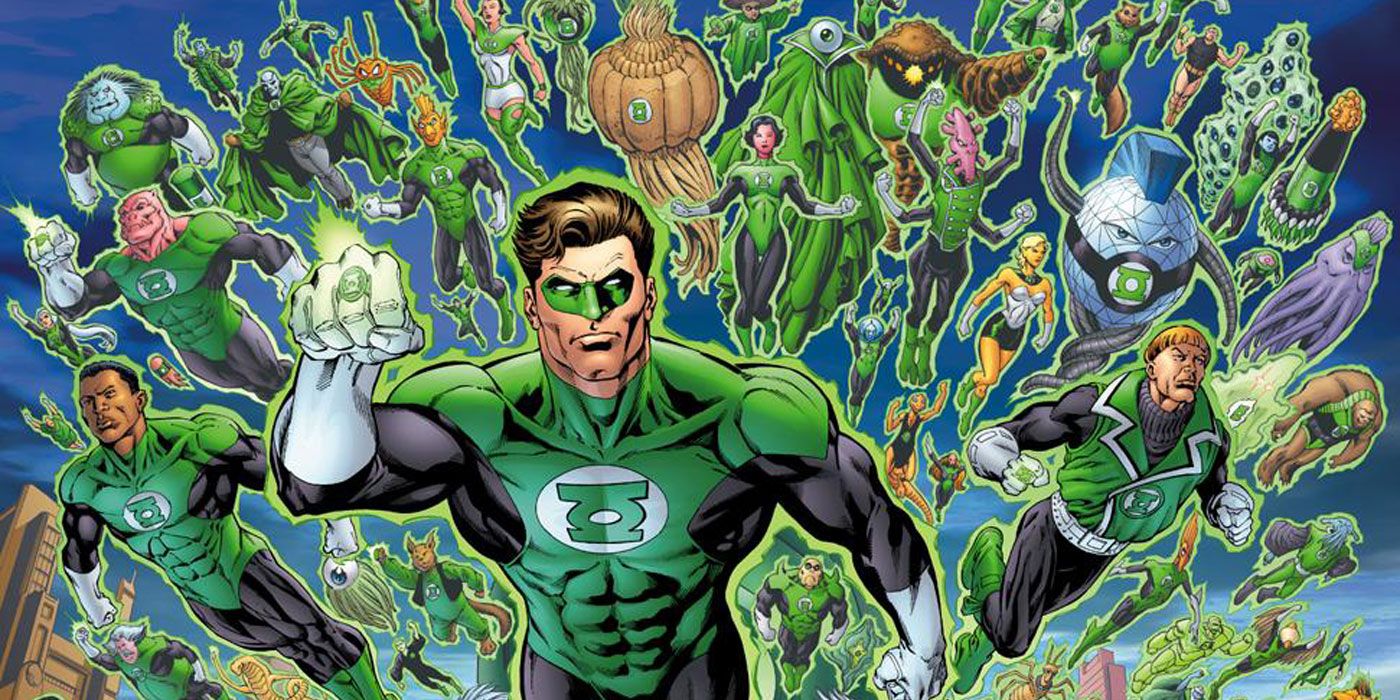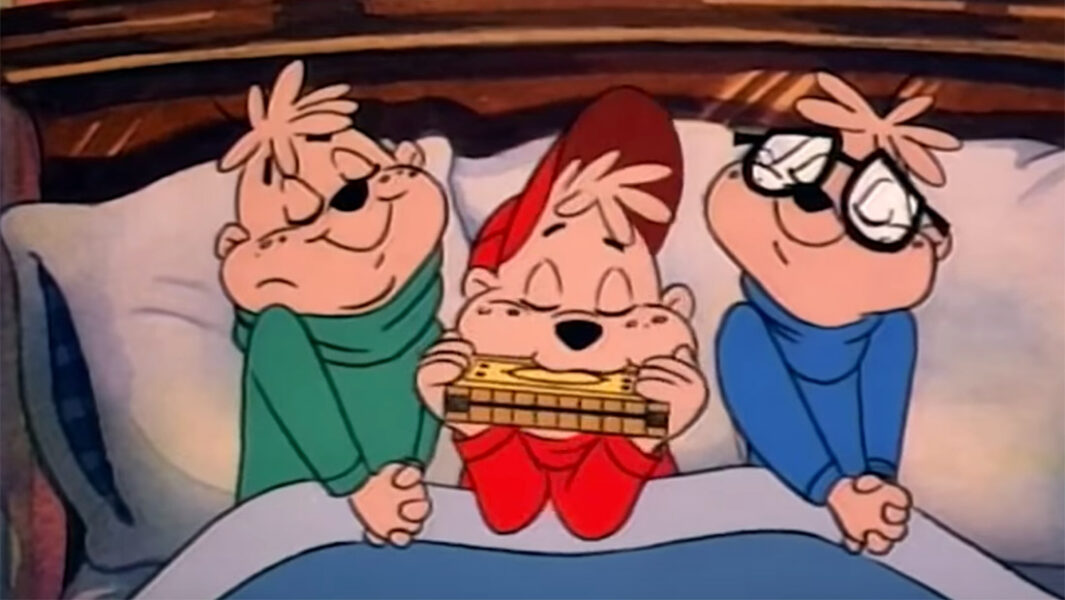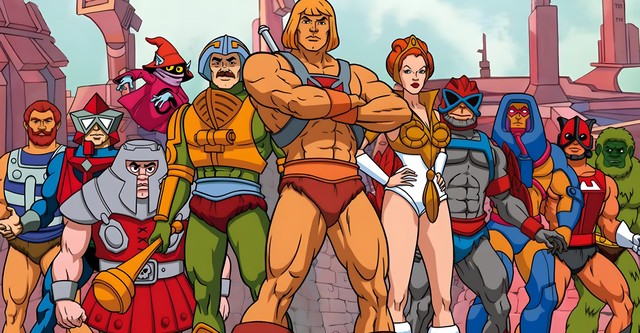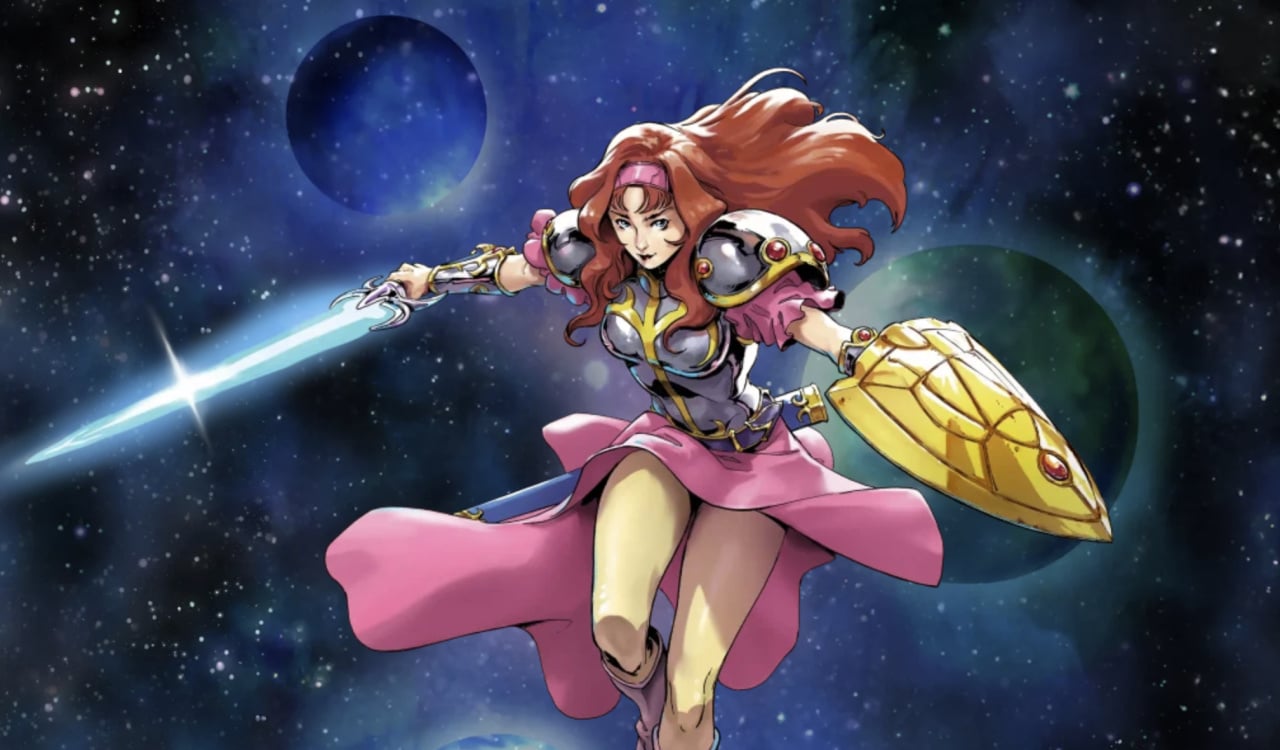SOUL Music
Standing in front of the main Lucasfilm offices, Koji Kondo couldn't help but think to himself that America was a strange and dirty place compared to his home nation of Japan.
Being shoved onto a plane and sent halfway around the world for an interview while he was a mere temp at the company was ridiculous and expensive, yet he couldn't do anything but grasp the opportunity with both hands.
It was rumored that Mike Eisner, the man who ran Lucasfilm from day-to-day, was personally looking for a composer and sound designer to work alongside an extremely talented writer on one of their films and he was prepared to scour Lucasfilm and beyond to find the right person.
Koji fit the bill and so, on recommendation from Hideo Kojima, he was sent to America, all expenses paid. On the surface, it was ridiculous, unthinkable American excess. Koji did not intend to stay with Lucasfilm beyond his temporary work, just long enough to get some experience and a few contacts for his CV, but he had his pride as an artist, leaving him with a duty as a (temporary) employee of Lucasfilm. Although, the significant benefits that the position came with certainly didn't hurt.
Koji pushed open the door, took in the scene before him, and smiled.
Very impressive benefits.
One of the most alluring things about working for Lucasfilm, even temporarily, was the access to their cutting-edge technology. Technology that was actively changing the definition of what was possible, being able to create things that simply weren't possible in the years and decades before.
Of course, the most obvious and talked-about changes were visual. It was easy to see, or rather,
not see the impact of things like motion control cameras and yellow screens, making once impossible shots possible, or computer generation and assistance, creating backdrops that couldn't be replicated with more "practical" effects.
Much fewer overtly noted how much better Lucasfilm productions sounded until it was pointed out to them. Even so, if you were to show them a film from Universal followed by one from Lucasfilm and ask which one they prefer, most people would say Lucasfilm's film was "better," but be unable to state why.
Some of that "better" was due to THX, Lucasfilm's sound teams, and the possibilities opened by actively working to ensure the actual movie theatres had the technology to transmit that enhanced sound to theatergoers. Some could also be attributed to the ridiculously high-quality work of Skywalker Sound during filming and post-production, chasing the edge of what was possible, like all of Lucasfilm.
In their quest for that edge, Skywalker Sound mastered and made available every form of tool and instrument that could be found or conceived, even if they had to invent it themselves.
Especially If they invented it themselves.
Enter Apple, a semi-associate of Lucasfilm, separate in that the company's focus was not movies or anything film-adjacent, but treated computers with the same passion that Lucasfilm displayed in the art of filmmaking. Apple sometimes produced successes, other times failures, and sometimes an entirely new dimension of possibility was formed. Most relevantly, it ensured that Lucasfilm, or someone from the company, knew when new things became possible through the digital. Something that Lucasfilm took full advantage of.
The room before him was a room that had clearly been built by those who had no idea of what a soundstage needed to be, or even what the room was going to be used for, and so another, smaller room had been refitted inside by those who
understood.
It wasn't that surprising when he thought about it.
For all of its impact, Lucasfilm was still a recent startup that was, even now, rapidly expanding. There simply had not been the time for custom buildings or for the site to mature, so many of the preexisting buildings now belonging to Lucasfilm were like this, mixed retrofits based on the past and present needs of the mad artists that Lucasfilm employed and Mike Eisner sorting things out when he could.
Weird things like an experimental instrument in a custom soundstage got installed in a building usually reserved for writers because "there was room in there." It made finding anything a greater challenge than it needed to be, like the meeting room he was looking for in this very building. Still, it also encouraged creative mixing, so it was technically a success.
Koji arrived at the meeting hall nearly an hour early and was told the others he was meant to be meeting were not ready yet and that this room was available if he wanted to use it for a bit.
What could he say but yes?
The inner room was dominated by several levels of a piano-like keyboard built into a machine that blinked with selection after selection of somewhat mysterious electronics. The room's smell hit him as Koji took a deep breath; it smelled like lightning, copper, and possibility.
As he walked toward the desk, he reflected on his surroundings, noticing countless banks of electronic equipment as he passed by. Once upon a time, a pipe organ was the only machine with comparable capability and complexity. Monstrous machines of music and power built into cathedrals or castles with hundreds of different pipes powered by giant bellows, each pipe in the organ cunningly made to replicate a sound made by another instrument, and a few were unique only to that pipe organ, all put in the hands of the man at the keyboard. Man is temporarily elevated to a god of music, capable of matching whole orchestras by his will alone, and yet, it wasn't enough.
Man desired to recreate all possible sounds. New sounds required new tubes, bellows, and keys added to the ever-growing keyboard, man desperate for even one more sound, for one more possibility.
Then along came Lucasfilm, Apple, computers and custom sound synthesizers.
A computer could be instructed to record and then precisely play back any sound it could hold in its metallic brain. Initially, crude musical movements were improved by installing better microphones, speakers, and storage. Music once thought impossible or too difficult to create to be worth the effort were now achievable through silicon and the will of man. Simply press a key to play the sound back, then another to save the exact notation so it can be played again and again just as perfectly as the composer intended. It still doesn't sound right? Go back and adjust the notation or timing slightly on the machine's digital score and try again. Perfection was now as much about patience and effort as luck to get that one perfect recording. Technological advancement created a digital pipe organ that rivalled any cathedral. All possible sounds a pipe organ could make the digital one could match and so, so much
more.
But, what if that wasn't enough for the new breed of digital musicians pushing the envelope of possibility at Lucasfilm? Change the settings on the silicon-souled beast, and a new library could be loaded. Now, the pipe organ sounded like a guitar, like drums, like a full orchestra. Choosing which instrument or combination of instruments was output was as simple as swapping disks or adding more data banks to hold more disks and sound became an issue of input samples. Guitar? Easy. Piano, no difficulty. Raindrops falling onto a metal roof? No real challenge. The machine could play anything that could be recorded and defined as a note. Cars backfiring, steps taken, and even gunfire.
Anything that could be recorded could be played back on command.
To the artists at Lucasfilm, that was a good first step, but what about those sounds that could not be recorded, sounds that no ear had yet heard?
That was what box after box of knobs and lever, sliders, and dials built into the machine were for. Adjust the waveform of the note itself and create a sound from scratch if needed. New, never-before-heard sounds were created. Tracks that took advantage of the machine's ability to seemingly alter the rules of sound itself.
When he was first given access to this room, one of the ILM Magicians gave Koji a small demonstration. Sound diminishes as it echoes, but with the machine, it was trivial to make it echo louder each time for a sound that no one had heard before. This sound effect existed exactly nowhere in nature. A talented musician with one of these could seemingly break the rules of sound itself, and a new genre of music was born: Synth.
As Koji sat down, he had to take a moment to steady himself as the possibilities ran through his mind. The infinite possibility of music, constrained only by his imagination and skill, was in the palm of his hand, and he was going to start with an idea he had just to calm himself down before he met his prospective project manager, just writing a tune for a picture he found.
As he moved into position, a crinkling sound caught his attention, and he put his hand in his pocket and pulled out a crumpled picture of some kind of large goat creature wearing royal regalia. As Koji was passing through earlier, a piece of rubbish had fallen out of an overfull bin. It would have been ignored if it weren't for Koji's very Japanese disgust at the mess, so he reached down to put it back in. It was then he saw what was on the paper, and he was entranced.
One the paper were sketches of a character simply labeled Asgore. Childish in a way, and yet, somehow inexplicably captivating all the same. They took him on a journey in his mind he had not expected, so he smoothed it out, rather than disposing of the paper, and took it with him.
Koji had half an hour with the machine and no demand on his time, so as a purely intellectual exercise, he would put together what he could in that time to create something to truly convey Asgore as he understood him. It was unlikely that it would lead to anything serious though, seeing as how it was just a bit of fun. Picture in place, propped up onto the music stand, his fingers came down on the keys as the king seemed to stare down at him.
Sound leaks and sound travels, and for someone who doesn't feel as though they can take the best, most sound insulated spots of the writing rooms, sound infiltrates the thoughts of writers. Perhaps it was chance, perhaps luck, but Mavis found herself staring at a few sketches of the character Asgore as sound leaked through the wall. The notes would change, adjust, and play again as the unknown player uses the new device in the next room.
It was distracting that the piece, with its tones, kept pushing her to think of that lonely King Of the Mountain that she so embarrassingly based off of herself. It was a picture in sound that was close but not quite right.
She tried to forget the music. She was scheduled to meet the next person Mr. Eisner had found for her in order to discuss sound design and their possible role leading composition for the Undertale.
The man who practically ran Lucasfilm more or less gave her free reign to do whatever she wanted with the movie and encouraged her when he felt she was not being ambitious or assertive enough. A stuttered comment about the candidates she had already met being talented but having not quite gotten "it," and what does he do? He turns Lucasfilm upside down and starts pulling people from all across the world, just to see if they would fit.
She sighed, knowing in her heart of hearts that it was more on her and her perfectionism than them. Lucasfilm was full of incredibly talented people, and that she wasn't able to communicate her intentions clearly enough and couldn't make them
understand was her fault—just like it was her fault she got coerced into being a corporate spy
in the first place.
She shook her head. It wouldn't do her any good to think about that right now.
The music had changed slightly, the shape of the notes itself different. It was still not right, but much closer to what she envisioned for Asgore than what anyone else had produced.
The meeting with the new potential sound designer would begin shortly. Mr. Eisner would be there already and she knew how much he disliked delays…
but if she moved quickly and got whoever was playing the piece to record it, she could use it as an example for the new sound designer!
But that would mean confronting someone.
She stood hesitating for a second as the notes changed slightly once again—closer to what she envisioned. She
wanted that music, but it would mean interrupting and pushing forward in ways that still hurt to do so.
As she waffled back and forth about what to do, the notes changed again, but this time away from what she
knew was
right.
She had no more time to dawdle before the piece was lost.
With her heart hammering in her chest at the boldness of her actions, she set off rapidly down the hallway to the building sounds of what would become Bergentrückung and ASGORE.
Koji sat entranced, reviewing the piece he had put together. It was close, but it wasn't quite right. The tones, the beat, and the shifts and changes were almost right, but there was still much that he felt was missing from the piece.
"Microtones."
"What?" He asked, as he was suddenly pulled from his contemplation. A woman's voice cut through his thoughts, and seeing his hesitation, she repeated herself.
"De-tune the piano and use microtones here," she declared, as she pointed to a section of music displayed on a screen with a shaking hand.
He didn't know who this woman was, but the look on her face compelled him to listen. It was apprehensive, sure, but underlying that was an absolute certainty.
He reached out and made the change.
"Then here, and again here," her hand beginning to steady as he followed her instructions.
The changes were made, and he pressed the button to repeat the track.
"Um… also, drums. Here, here—"
"And here," they both tried to say simultaneously. A glance at each other and a connection was made. She got what he was trying to do. She
understood.
Change after change followed, sometimes from him, sometimes from her, but slowly building to match the music to the picture of the tragic King in his head.
Time disappeared in a blaze of creativity. The initial sketch fell to the floor, Koji unsure and uncaring if it had, then suddenly, they were left with a track, a track Koji was
certain was
right.
"May I have a copy?" The young woman asked almost shyly, no trace of the fire that had been in her eyes as they worked together just moments ago.
Koji happily pressed the button that would save the finished track to a disk, about to ask for her name before he noticed the time.
Twenty minutes late to his meeting.
"Thank you! Thank you, Senpai, but I must go," Koji quickly said as he retrieved the disk from the machine and noted the picture on the floor, automatically picking it up before wrapping it around the disk. He had pressed the disk and picture into the woman's hands and made it halfway out the door before he had even realized what he had done.
"I apologize, but I must go now; I am late, but I hope to create art with you again," he called back, and he flew out the door, vaguely noting that she was also startled by the time.
It seems that he wasn't the only one who was late.
It took another fifteen minutes just to find the meeting room he was supposed to be interviewing in.
This building was indeed a labyrinth.
His tardiness had almost certainly cost him any chance at the job being offered. A long shot anyway, but he had an opportunity to create true art, which more than made the trip worthwhile in his eyes. It was not to be forgotten, but still, he wished he could have gotten the name of that woman and another chance to create with her.
One of Eisner-san's assistants ushered him inside, clearly annoyed by his tardiness. Inside, several clearly important people from Lucasfilm fussed over various pieces of concept art and listened to an…
eerily familiar track on headphones. Did he...
Before he could finish his thought, it was then that someone moved and he could now see the person commanding the chaos in the room. The impossible was made possible as he stood across the woman from the recording booth. That same nervousness from before, still seemingly unsure of something, but holding up another picture, just like the one that had so captivated him before.
"Do… you want to do it again?" she asked shyly, holding up a picture of a flamboyant robot in pink.
A.N: Hey y'all, it's been quite some time, huh? I think it was before Christmas when I was last regularly active in the thread, although I've begun picking up again. Thing is, I've been
super busy with IRL shit. Mostly university and finances, though not just that. Another thing I've been busy with was actually Arcane. I've mentioned it before, but I'm a huge fan of Arcane. I adored the first season and I expressed excitement for Season 2 when I made my Arcane pitches. Well, I watched it and... I was
not impressed. This isn't the place for it, so I'm not gonna get into it, but Season 2 was not just "not as good" as Season 1, but it is
actively bad. I often say to people, Season 1 is a masterpiece and Season 2 is a disasterpiece, and whereas Season 1 would get better and better the more you dug into the details, Season 2 gets worse and worse the more you dig into it. That being said, I'm still a really big fan of Arcane and I'm still very passionate about the series, so I got together with a couple of other likeminded pals of mine and we've been working on a rewrite of Season 2, along with a wholly original Season 3 and a special "3-part finale," for which I'll be doing the writing for. I've already finished fully outlining the first few episodes of Season 2 and I'll be officially (I've already begun doing it unofficially) starting on writing my first drafts just as soon as I resolve my current situation with my university(I lost my financial aid, so I've gotta figure out how I'm gonna manage to keep attending). Regardless, that's not why y'all are here. This here is an omake that was made by the very lovely and talented
@Xsplora for me on request, for which I did some editing and touch-ups to, and who was gracious enough to allow me to upload it on my end. I decided that since my own Undertale omake was still gonna take some time while this one was complete, I'd rather simply get this omake out and then save my omake to help boost Undertale's Oscar chances. I'm pretty sure that I had more that I wanted to say... but of course, I forgot what it was as I was typing it up, so I'll just leave it here. I hope you all enjoyed the omake!

)




